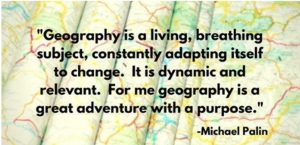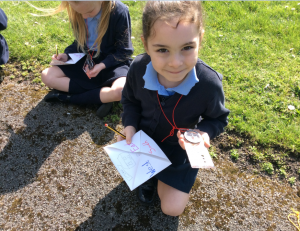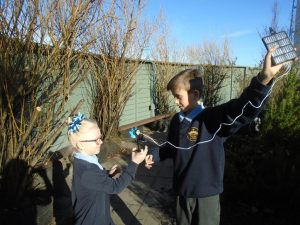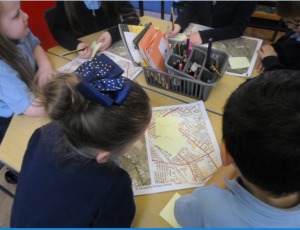Geography Vision Statement
The study of geography is about more than just memorising places on a map.
It’s about understanding the complexity of our world, appreciating the
diversity of cultures that exists across continents. And in the end, it’s about
using all that knowledge to help bridge divides and bring people together.
Barak Obama
At our school, we believe that it has never been more important for children to have
a comprehensive global understanding and knowledge of the world and the people
and cultures that inhabit it. Through understanding geography and the complexity of
our planet, we believe that our children will develop respect for the physical
environment and the diverse range of cultures and beliefs that make up our world.
Our children will be self-aware of the impact they can have on our planet. Our
Geography curriculum allows children to build resilience and become problem
solvers. We want our children to be inquisitive about the world, open-minded and
also responsible for the actions and choices they make.
We aim to foster understanding, curiosity and fascination about the world and its
people through the planned curriculum and through opportunities that arise
throughout the year including:
- Learning about the countries of new children to the school as the cohort diversifies
- Read stories and learn songs from other countries and cultures
- Discuss and debate world news items as they arise
- Take part in global charity work and sustainability projects

Curriculum Intent
The geography curriculum promotes curiosity and a love and thirst for learning. It is
ambitious and empowers our children to become independent and resilient – like all
curriculum areas.
We want to equip them with not only the minimum statutory requirements of the
geography National Curriculum but to prepare them for the opportunities,
responsibilities and experiences of later life. For example, our children have had a
number of opportunities to plant trees within both the local area and on our
school grounds. Our children have learned specific planting skills including:
the best areas to dig, linear planting and safety when using spades along with qualified Mersey Forest staff. One child commented during a Mersey Forest Initiative that: “It was great and fun helping the park and protecting wildlife. I know that in a couple of years our trees will help protect squirrels, hedgehogs and birds with their habitats”. This learning has been embedded through our Gardening Clubs and half-termly Forest School Sessions. In addition, Year 2 and the Eco Council bi-annually visit the Veolia Recycling Centre, during which they learn about the journey of the items we recycle and how best to promote this. The Eco-Council meet regularly to discuss ‘Eco Warriors’ climate change challenges and then disseminate information to their classes as well as leading the school through special weeks such as ‘Switch Off’ and ‘Waste Week’ during which they introduce the theme of the week to their classed and encourage them to complete tasks and activities at both home and school. We also celebrate national and international events such as the Olympics and The World Cup, most recently exploring Qatar during our World Cup Week in December 2022.
We want our children to use the vibrancy of our great city to learn from other cultures, respect diversity, co-operate with one another and appreciate what they have. We achieve this by providing a strong SMSC curriculum, with British Values and our core values placed at the heart of everything we do. This often feeds into the geography curriculum. We ensure local, national and international units are
weaved into each year group to build an understanding and appreciation of
different places, people and cultures across the world. In addition, we have
global links with East Meru Community School in Tanzania, which two
teachers visited to share good practise. Linked with our RE curriculum, we
have gained the CAFOD Laudato Si Award. Each child and class have made a
pledge of how they can help protect our common home.
During their time with us, we want to provide children with memorable, unforgettable
experiences which pique their interests and passions. During the last Olympics,
each classroom turned into a different ‘country’. The children from Reception to Year 6 ‘travelled around the world’. In each classroom, they experienced the different cultures and some experiences of the country. We have also put Grants and PE funding towards developing our Forest School Area and a qualified Forest School Teacher now works within our school. This has greatly enhanced the children’s outdoor learning and experiences: from making Bug Hotels to toasting marshmallows around the fire to Orienteering and mapwork challenges. We firmly believe that it is not just about what happens in the classroom, it is about the added value we offer to really inspire our children and promote mental and physical well-being.
Curriculum Implementation
In July 2018 and again in September 2021, audits of the geography curriculum were
conducted. On the back of the findings, the geography curriculum has been carefully
built and the learning opportunities and assessment milestones for each year group
crafted to ensure progression and repetition in terms of embedding key learning,
knowledge and skills. We believe that our pupils need to be actively involved in
making sense of their learning and therefore an enquiry approach was implemented,
encouraging higher-order thinking and allowing our children to explore in a way that
is meaningful to them. In 2022 we made sure enquiry questions were used to guide
each unit, a Knowledge Organiser was used in books and referred to regularly and a
long term ‘Road Map’ was placed at the front of children’s Topic Books to ensure
that learning across year groups could be revisited and links made. Within each year
group, geography strands are revisited in a progressive manner. For example,
when encouraging an understanding of places and connection, Year 1 focus
on observing human and physical features within a local green space. This
understanding of our place in the world develops through the year groups
through comparisons within the UK, Europe and the wider world and then in both Year 6 topics there is an emphasis on understanding how places across the world are interconnected and the position of Liverpool within that.
Geography subject specific characteristics, which we expect the children to demonstrate, have been developed and shared with all stakeholders. These characteristics underpin all work in geography and form a focal point for display areas and provide a common subject specific vocabulary for staff and pupils. These characteristics are:
- An excellent knowledge of where places are and what they are like.
- An excellent understanding of the ways in which places are interdependent and interconnected and how much human and physical environments are interrelated.
- An extensive base of geographical knowledge and vocabulary.
- Fluency in complex, geographical enquiry and the ability to apply questioning skills and use effective analytical and presentational techniques.
- The ability to reach clear conclusions and develop a reasoned argument to explain findings.
- Significant levels of originality, imagination or creativity as shown in interpretations and representations of the subject matter.
- Highly developed and frequently utilised fieldwork and other geographical skills and techniques.
- A passion for and commitment to the subject, and a real sense of curiosity to find out about the world and the people who live there.
- The ability to express well-balanced opinions, rooted in very good knowledge and understanding about current and contemporary issues in society and the environment.
We empower our staff to organise their own year group curriculums under the
guidance of our subject leaders. Teachers are best placed to make these
judgements. Staff develop year group specific long-term curriculum maps which
identify when the different subjects and topics will be taught across the academic
year. The vast majority of subjects are taught discretely but staff make meaningful
links across subjects for example in History and English. They link prior knowledge
to new learning to deepen children’s learning. For example, in Year 6 when the
children explore ‘Why is Climate Change a Global Issue?’ they use the work of David Attenborough as part of their ‘Non-Chronological Reports’ topic. During this topic, they also explore Climate Change Conferences such as COP27 and debate the important issues surrounding the global challenge of NET Zero. Our children are taught the right, connected knowledge in as many different ways as possible.
Our short-term plans are produced on a weekly and daily basis. We use these to set
out the specific learning objectives for each lesson, identifying engaging activities
and resources which will be used to achieve them. We have a series of questions
that are revisited at the start of each geography lesson and regularly revisit key
questions and vocabulary to ensure learning ‘sticks’ and can be used across the
curriculum.
We encourage staff to teach a weekly geography lesson for at least 6 weeks each
term. This helps to ensure sufficient time is allocated to geography and that
geographic subject matter can be revisited frequently. We believe that by crafting our
curriculum this way, we improve the potential for our children to retain what they
have been taught, to alter their long-term memory and thus improve the rates of
progress they make.
Curriculum Impact
We use both formative and summative assessment information in every geography lesson. Staff use this information to inform their short-term planning and short-term interventions. This helps us provide the best possible support for all of our pupils, including the more able. The assessment milestones for each phase have been carefully mapped out and further broken down for each year group. This means that skills in geography are progressive and build year on year.
Our staff use geography formative assessment to systematically assess what the children know as the topic progresses and inform their future planning.
Assessment information is collected twice a year and analysed as part of our monitoring cycle. This process provides an accurate and comprehensive understanding of the quality of education in geography. A comprehensive monitoring cycle is developed at the beginning of each academic year. This identifies when monitoring is undertaken. The last geography monitoring took place in November 2022. Monitoring in geography includes: book scrutinies and pupil and staff voice.
All of this information is gathered and reviewed. It is used to inform further curriculum
developments and provision is adapted accordingly. For example, book scruntinies
and professional dialogue with staff identified Fieldwork as an area for CPD. Staff
were provided with inset from an advisor from Lancashire which provided advice on
how to implement fieldwork activities and in 2022/23 the new Geography Co-ordinator attended regular Strand Partnership Meetings to learn and share good
practice with other schools in the area.
Geographical understanding, as well as children’s spiritual, moral, social and cultural development is further supported by the school’s links with an international partner school in Tanzania. The children have raised funds to support the school. Two of our teachers have visited the school and reported back to the children about the cultural differences and the experience.
This aspect of the work of the school is also supported through specific drives which include themed days such as Year 4’s ‘European Neighbours’ day. Children taste food from the European countries. They also participate in traditional dances, art and music activities. Children are able to learn about careers related to geography as we have many visitors to the school and school trips to provide this information. For example, visits to Veolia Recycling centre, Southport Eco-Centre, Forest School leaders, Mersey Forest, Sefton Park Rangers etc. We participate in many national and local projects such as ‘Waste Week’, ‘Helping Hands’ and ‘World Ocean Day’. We play a very active part in the local community and annually litter pick in Sefton North Park, planted trees in Seaforth Triangle, planted bulbs for Sefton in local parks and held planting competitions in school.



